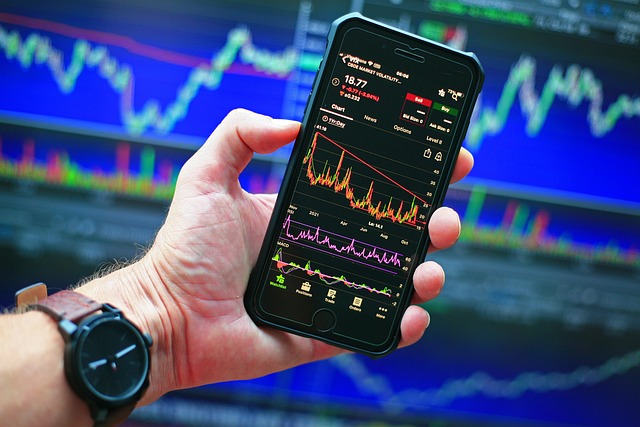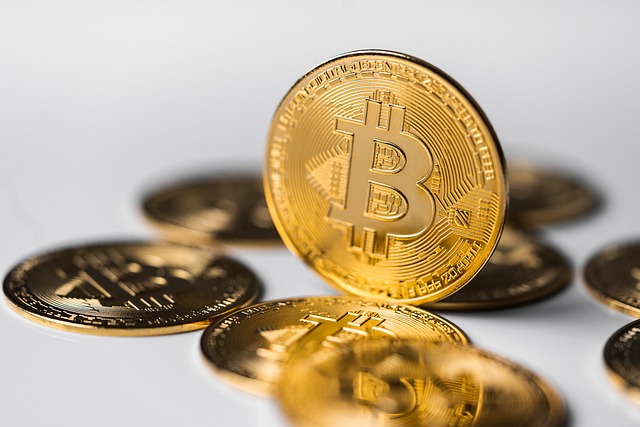Cryptocurrency wallet security is paramount in the digital era. Hardware wallets offer physical protection, software wallets rely on encryption and private keys, while mobile wallets require enhanced biometric and hardware security due to constant connectivity. Best practices include using strong passwords, enabling Multi-Factor Authentication (MFA), regularly updating software, backing up wallets, and choosing secure crypto trading platforms with robust encryption, cold wallet storage, 2FA, insurance for digital assets, and compliance with security regulations.
In the ever-evolving world of cryptocurrency, securing your digital assets is paramount. This comprehensive guide delves into the critical aspects of safeguarding your cryptocurrency wallets, covering various types and their unique security features. From encryption methods that protect your private keys to robust multi-factor authentication practices, we explore best practices for creating strong passwords. Learn about backup strategies, online safety measures, and key tips for choosing reputable crypto trading platforms to ensure a secure and stress-free experience in the dynamic landscape of digital currencies.
- Understanding Cryptocurrency Wallets: Types and Their Unique Security Features
- The Importance of Encryption in Safeguarding Your Digital Assets
- Best Practices for Creating Strong Wallet Passwords and Multi-Factor Authentication
- Backup and Recovery: Ensuring You Never Lose Access to Your Cryptocurrencies
- Staying Safe Online: Protecting Your Wallet from Cyber Threats
- Top Security Tips for Choosing a Reputable Crypto Trading Platform
Understanding Cryptocurrency Wallets: Types and Their Unique Security Features

Cryptocurrency wallets are digital storage spaces that hold your cryptocurrency assets, acting as a bridge between you and your funds. They come in various types, each with distinct security features. For instance, hardware wallets, like Ledger and Trezor, offer robust physical security by detaching from your device, making them less susceptible to software vulnerabilities. Software wallets, such as those provided by exchanges or downloaded apps, often utilize encryption and private keys for user authentication, providing secure crypto trading platforms.
Mobile wallets are convenient but require careful consideration due to their constant connectivity. Biometric authentication and secure hardware can enhance their security, ensuring your funds remain safe while offering easy access. Understanding these differences is crucial when adopting best practices for securing your cryptocurrency assets, as each wallet type has its own set of strengths and weaknesses in the realm of digital safety.
The Importance of Encryption in Safeguarding Your Digital Assets

In today’s digital landscape, safeguarding your cryptocurrency assets is paramount, given the sensitive nature of blockchain technology and secure crypto trading platforms. Encryption plays a crucial role in this security framework by transforming data into a coded format that unauthorized users cannot decipher. This ensures that even if there’s a breach, your private keys, transactions, and personal information remain protected. Advanced encryption algorithms, such as AES-256, are industry standards, providing robust security for your digital wallets.
Moreover, the use of encryption doesn’t stop at data protection; it extends to secure communication between users and their wallets. Secure connections, like HTTPS, ensure that all interactions with your crypto wallet are encrypted, preventing malicious actors from intercepting or tampering with your sensitive information during transactions or account management activities.
Best Practices for Creating Strong Wallet Passwords and Multi-Factor Authentication

Creating strong passwords is a fundamental best practice for securing your cryptocurrency wallet. Since crypto wallets often hold sensitive information, using unique and complex passwords is essential. Combine uppercase and lowercase letters, numbers, and special characters to create a robust password that’s difficult to guess or crack. Avoid personal details like birthdays or names, as these can be easily obtained and used in brute-force attacks. Consider using a password manager to generate and store secure passwords for each of your wallets.
Multi-Factor Authentication (MFA) adds an extra layer of security to your crypto wallet. Even if someone manages to obtain your password, MFA ensures they still need access to your physical device or a specific code from an authenticator app to gain entry. Enable MFA on all your secure crypto trading platforms for enhanced protection. Regularly update your passwords and enable two-factor authentication whenever available to keep your funds safe from unauthorized access.
Backup and Recovery: Ensuring You Never Lose Access to Your Cryptocurrencies

In the realm of secure crypto trading platforms, backup and recovery play a pivotal role in safeguarding your digital assets. The process involves creating secure copies of your cryptocurrency wallet, ensuring that even if you lose access to your primary device or encounter technical glitches, your funds remain protected. A robust backup strategy includes using reputable cloud storage services known for their encryption and security features, making it difficult for unauthorized individuals to gain access.
Regularly updating your backups is crucial, mirroring the frequency with which you conduct transactions. This proactive approach ensures that no matter what happens, you can effortlessly recover your cryptocurrency wallet, maintaining continuous access to your hard-earned digital assets. Remember, a secure crypto trading experience isn’t just about preventing theft; it’s also about ensuring you never lose control of your financial future in the ever-evolving landscape of decentralized finance.
Staying Safe Online: Protecting Your Wallet from Cyber Threats

Staying safe online is paramount when it comes to securing your cryptocurrency wallet and protecting your digital assets. The world of crypto can be exciting but also perilous, with various cyber threats lurking in the digital landscape. Malicious actors often target secure crypto trading platforms and wallets to steal sensitive information or gain unauthorized access to funds. To fortify your defenses, enable two-factor authentication (2FA) for an extra layer of security. This simple step significantly reduces the risk of unauthorized access to your wallet.
Regularly updating your software and operating systems is another crucial practice. Developers consistently release patches to fix known vulnerabilities, so staying current ensures your wallet and its associated software are protected against emerging threats. Additionally, be cautious when downloading or installing crypto-related apps or extensions, as some may contain malicious code. Only use trusted sources and read user reviews to verify their legitimacy.
Top Security Tips for Choosing a Reputable Crypto Trading Platform

When selecting a secure crypto trading platform, it’s paramount to verify the security measures implemented by the exchange. Reputable platforms employ robust encryption protocols like SSL/TLS for data transmission and store funds in cold wallets, which are offline storage solutions, enhancing protection against cyberattacks. Look for two-factor authentication (2FA) as an essential security feature that adds an extra layer of defense to your account.
Additionally, check if the platform offers insurance for digital assets or robust cold storage procedures. Ensure regular security audits and compliance with industry standards like KYC (Know Your Customer) and AML (Anti-Money Laundering) regulations. These practices ensure a more secure environment for trading and storing your cryptocurrencies, safeguarding your investments from potential threats.
In the ever-evolving landscape of cryptocurrency, securing your digital assets is paramount. By understanding different wallet types and their security features, implementing robust encryption, creating strong passwords with multi-factor authentication, and backing up your wallets, you significantly reduce the risk of loss or theft. Additionally, staying vigilant against cyber threats and choosing reputable crypto trading platforms known for their robust security measures are essential best practices. Adhering to these guidelines ensures a safer experience in the world of digital currencies. When selecting a secure crypto trading platform, remember that thorough research and prioritizing your wallet’s safety are key to navigating this dynamic market with confidence.
